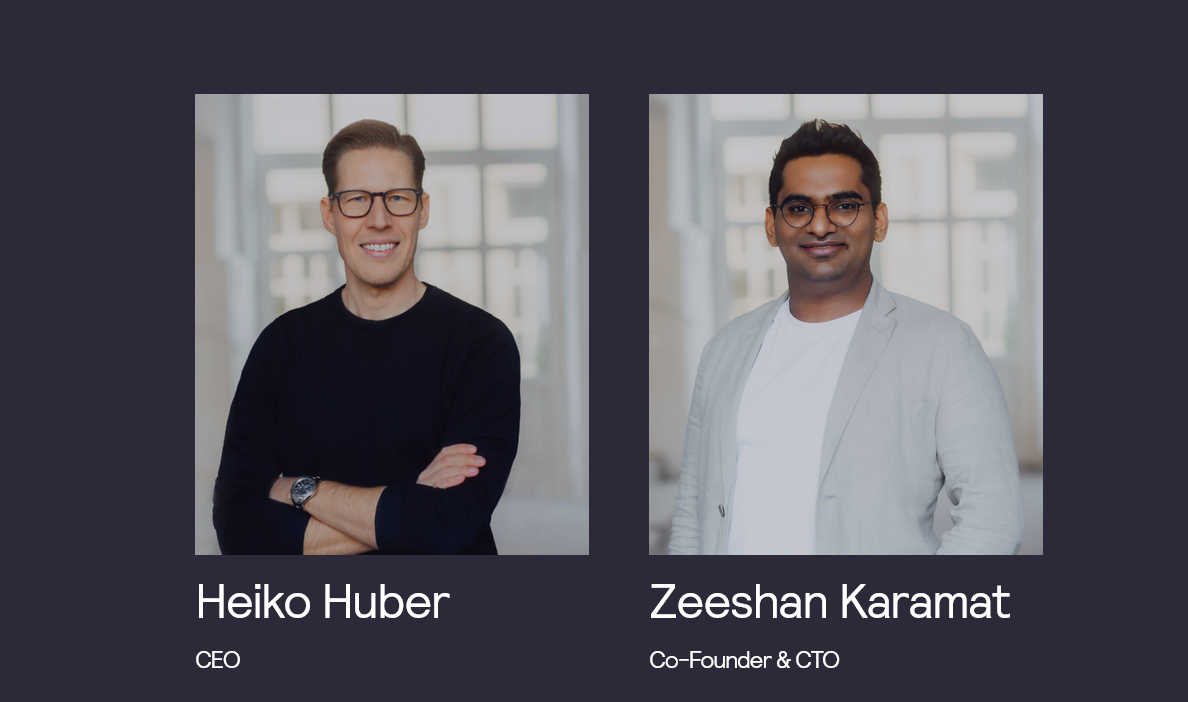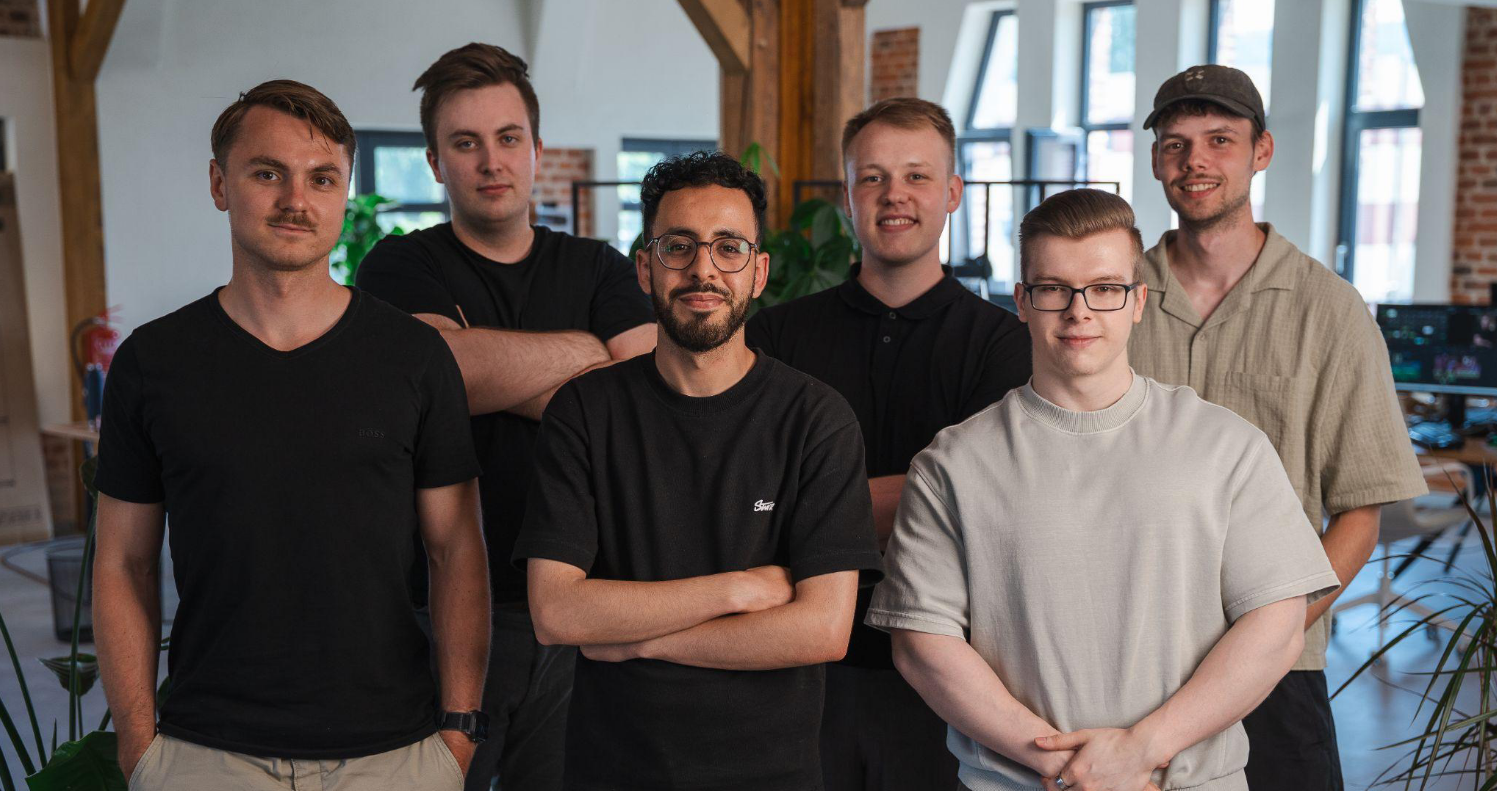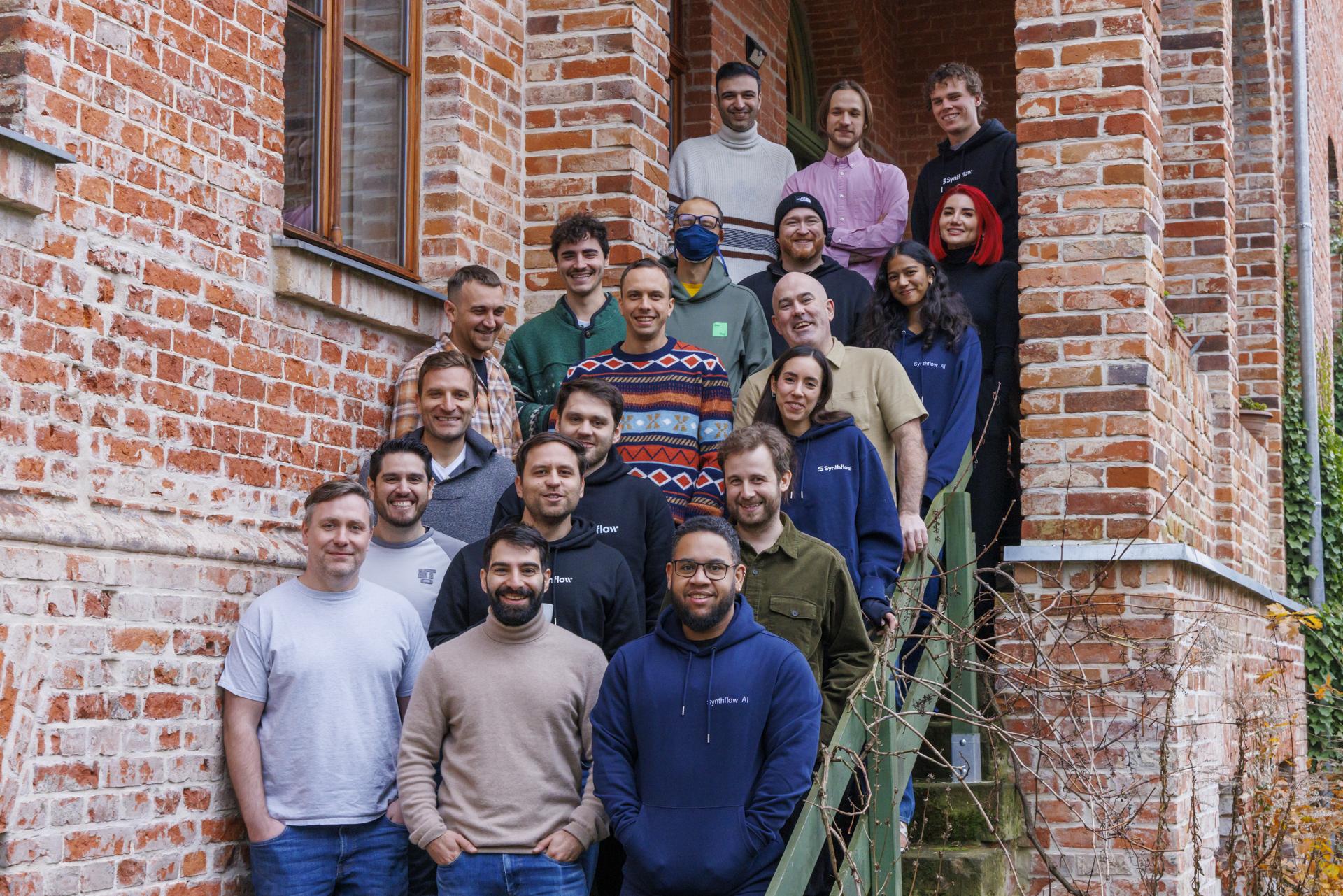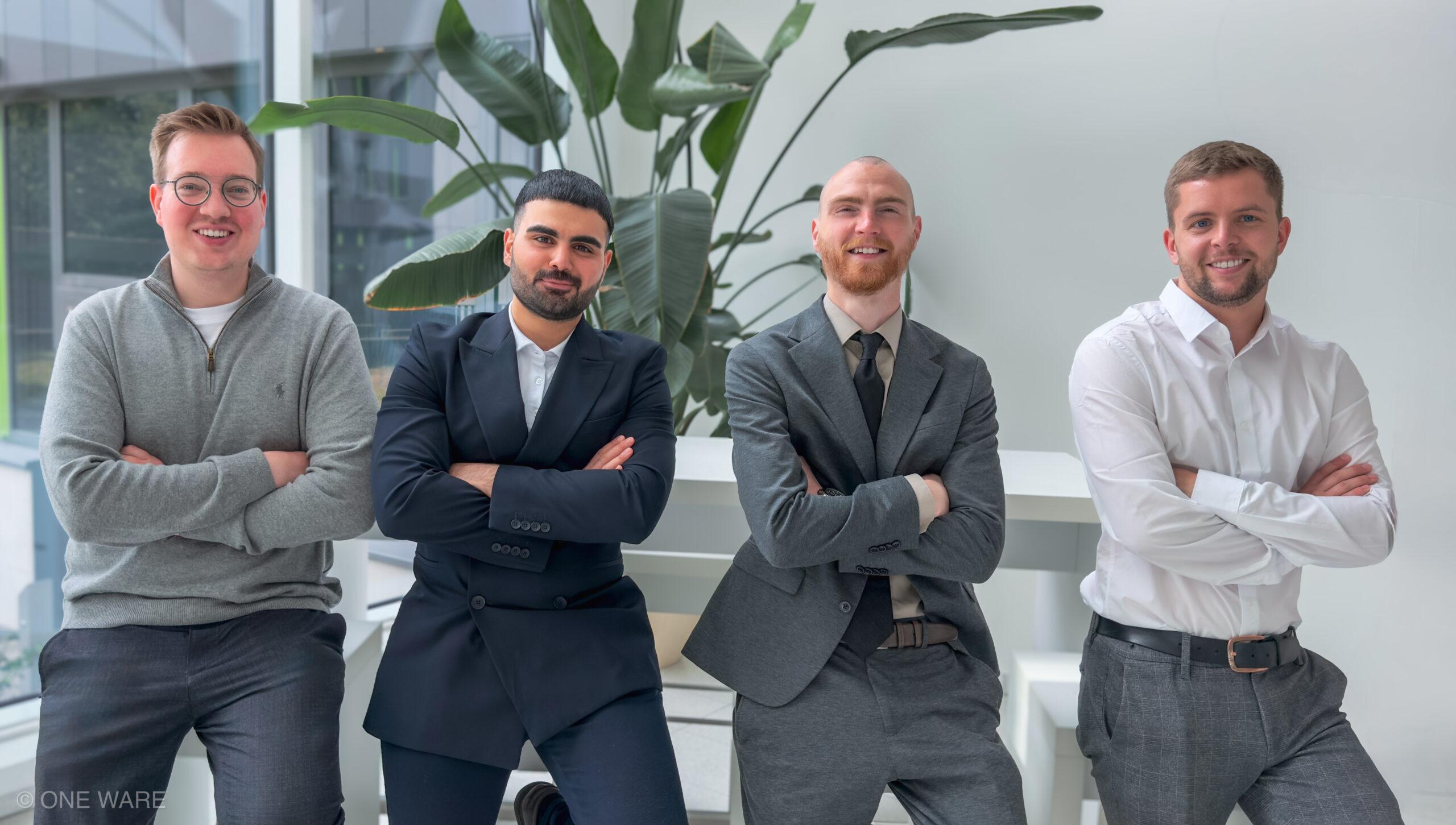Kontist #FintechPortraits

Value added tax, trade tax, income tax - as a self-employed person, you have a lot of bureaucratic requirements that need to be fulfilled. To simplify this, the Berlin Berlin start-up Kontist has built an app that allows customers to not only use a business account, but also manage their tax affairs. In this interview, the eight-time entrepreneur reveals how this works, why founder Christopher Plantener wants to change the legislation in Germany and how even successful fintechs can still benefit from accelerators.
Why did you found Kontist?
When you start your own business, you want to do what you dream of doing, what you're passionate about, and not spend weeks struggling with bookkeeping and administration.
Christopher Plantener, founder of Kontist
The idea for Kontist actually arose from my own need or from a customer need. I have already founded eight companies myself and always hated all the admin and accounting issues back then. As a self-employed person, you spend around 26 days a year just on administrative tasks, so everything that an employee sees quite trivially on their payslip, a self-employed person also has to do. When you become self-employed, you want to do what you dream of doing, what you're passionate about, and not spend weeks on end dealing with bookkeeping and administration.
After working in accounting systems for the last 15 years and co-founding and building the start-up "debitoor", I asked myself at some point: How can it be that we have been trying to automate for years, we have machine learning and artificial intelligence and yet we are not making any progress? I still have the feeling that the processes are very difficult, especially for the one-man show (i.e. for solo self-employed people). And then I thought about how to simplify the accounting and tax process for solo freelancers.
The first question was: who has the data you need for this? And that's the banks, of course. If you have access to this data, you can quickly automate the processes. So I went in search of a bank. I called N26, for example, and the Spanish bank BBVA, but the response I always got was: "Great idea, come back in two years because we're super busy at the moment."
And then I thought to myself: No I'm not coming back in two years, I'll build it myself!
And so the idea of Kontist was born. We founded our own bank, or rather we sit on top of Solarisbank, but offer a business account and a bank card for the self-employed and are perceived as a bank. The business account is the basis for solving our customers' problems and automating taxes and accounting for the self-employed. And that is what we are doing together with Kontist Steuerberatung today. We now provide freelancers and self-employed people with all the important services relating to their financial administration in one app.
And how exactly does that work?
Well, most self-employed people have a lot of money in their account, but it doesn't belong to them. VAT, trade tax and income tax still have to be paid on their turnover, but the tax return usually only follows 1.5 - 2 years later, by which time you actually have to put the money aside. However, many people don't have an overview of this, which we provide with the Kontist app.
With our business account, which can be accessed via the app on a cell phone, our customers can see their current account balance directly. The customer can then enter a receipt for any transactions that are carried out and taxes are automatically set aside in the background. As a user, you can then see what proportion of the money is actually available for free disposal. Our Kontist Steuerberatung and Kontist GmbH teams are working behind the scenes of the app. Together, they automate all transactions. This not only provides customers with an overview of their current financial situation, but Kontist Steuerberatung also takes care of all tax advice and business and private tax returns, which the team then sends directly to the tax office. You can also take advantage of our bookkeeping service. This means that just one app replaces the bank, the tax advisor and the bookkeeping.
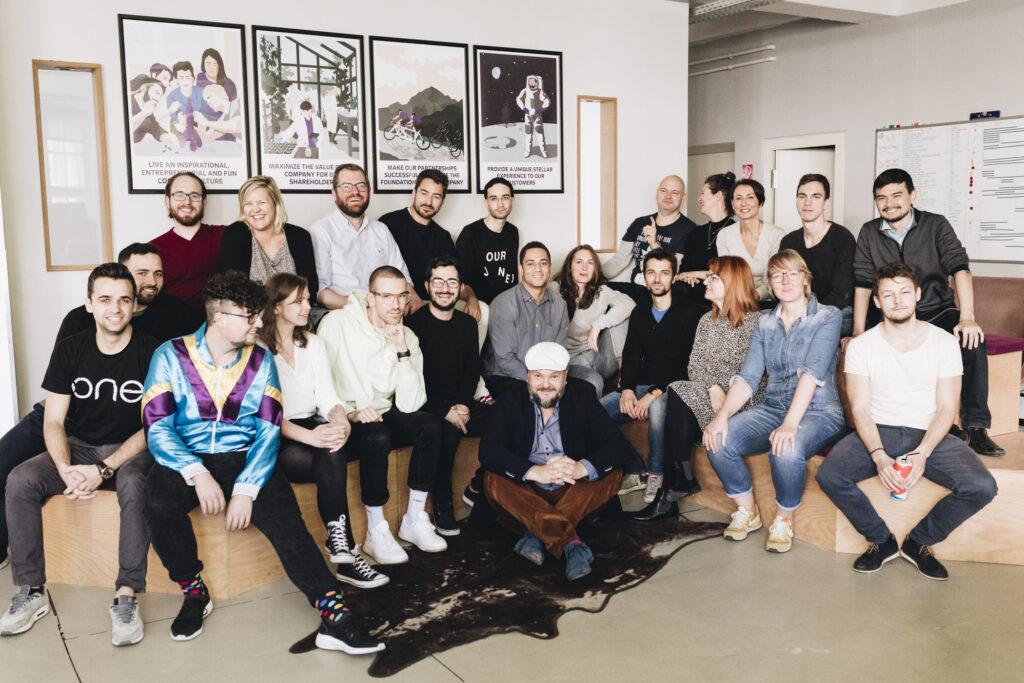
So much service certainly has its price, doesn't it? How much does Kontist cost for the customer?
We have different levels here: The account itself is free, those who need a bank card pay €9. The combination of account and bookkeeping costs €49 and for the all-round service with bank account, bookkeeping and private and business tax returns, customers pay €99 to €149, depending on turnover.
Those are high monthly costs for new entrepreneurs, aren't they?
That's true, especially as a newcomer you want to save some money. The problem here is that when you're just starting out on your own, you often don't know what you don't know. Our service is an enormous help, especially for self-employed people who are self-employed for the first time. Especially when it comes to taxes, it's easy to make a mistake and end up in a tax trap. I would say that administrative issues in particular are one of the biggest challenges and often the reason why many self-employed people fail again.
When you're just starting out on your own, you often don't know what you don't know.
Christopher Plantener, founder of Kontist
You also have to consider that a business account for the self-employed costs around €300 a year, and the cost of a tax advisor is around €2,500 a year. Extrapolated, our package is a lot cheaper and offers the advantage that you have a direct insight into your finances and taxes without having to deal with them.
But tax apps are now a dime a dozen, how do you differentiate yourselves here?
The main difference lies in the tax advice. Conventional tax apps provide the customer with a systematic way to submit a tax return, they ask the right questions and thus enable the customer to easily complete their tax return themselves.
Kontist Steuerberatung, on the other hand, advises customers and also submits the tax return directly to the tax office for them. Within the app, however, the customer has a complete overview of their finances, which sets us apart from normal tax advisors. Our goal is to solve the complexity through machine automation and bring simplicity forward for the user. That's my general mantra when I build a product.

And what was it like when you founded the company? Did you get any support, e.g. did you work with an accelerator?
Yes, Kontist was founded with an incubator from Denmark. That came about because they asked me to be a consultant, as I already had some experience as a mentor within an incubator. I had previously helped to set up a start-up boot camp in Copenhagen.
And how did that help you with the founding of Kontist?
Especially in the first six months, the incubator supported us with developers with whom we were able to build our first product together. That helped us a lot back then. In general, I have to say that I'm a big fan of accelerator programs because they can simply provide flexible support where you might have deficits yourself. Professional feedback and good sparring are great support at the beginning, especially for young founders. Although I have already founded eight companies myself, I would also consider working with an accelerator for my ninth company if they have the right specialists on board.
You have also recently set up a foundation, what are your plans for it?
My main goal is actually always to use technology to solve structural problems in the market. However, we wouldn't have these problems if legislators adapted legislation to modern times.
One example: service providers need to be particularly qualified and registered for issues such as taxes or accounting, and there are many bureaucratic hurdles that need to be met. There are many laws that regulate this, but none of them mention a machine.
Nobody has thought about what happens when a machine takes over these services.
Christopher Plantener, founder of Kontist
With the Kontist Foundation, we are addressing various issues, one of which is, for example, building a strong lobby. Our aim is to be a point of contact and a hub for the self-employed, we are engaged in targeted networking here and want to encourage the self-employed to join forces and jointly build up an interest group that can then also represent their concerns more strongly politically. Another point also relates to politics; we want to use our foundation to influence legislation and steer it in such a direction that Kontist will eventually become superfluous. About 10 years ago, for example, the status of "auto-entrepreneur" was introduced in France and this dramatically simplified the bureaucratic hurdles for the self-employed. This led to a boom in self-employment. I have something similar in mind for Germany.
And last but not least, of course, the topic of education: We need to educate much more and also introduce young students to the career prospects of self-employment. For this reason, we are also increasingly going into schools with our foundation.
And what direction do you think the fintech market will take in general?
I think we will see more and more specialization on the market in the coming years. In the beginning, it was mainly the big B2C topics such as banking and taxes. I think the B2B sector will continue to be particularly exciting, as this is where the real money is to be made. I also expect smaller and smaller niches to be covered. There will probably be more and more mergers, especially in the large fields such as banking and trading or banking and taxes. I think some big players will cooperate here.
I think the next important development will be: What will happen with London? Particularly in view of Brexit, it will be very exciting to see what the British government will come up with. There have been attempts for some time to make the market more attractive for start-ups and fintechs in particular through deregulation. The exciting question is whether the EU will allow financial services to be offered for the European market from London. If so, London will prevail over the other fintech marketplaces in Europe. If not, then Berlin could develop into a major fintech player, which in turn could have spill-over effects on the other cities in Germany. So it remains exciting.
Thank you for the interview.
Personal details: Christopher Plantener is the founder of eight companies and has worked as a freelancer for a long time. He has lived in other European countries for the last 20 years and has already worked in various European countries. Over the last 15 years, he has focused primarily on accounting systems and then founded Kontist in 2015, the first bank in Germany for freelancers and the self-employed.

Newsletter
Startups, stories and stats from the German startup ecosystem straight to your inbox. Subscribe with 2 clicks. Noice.
LinkedIn ConnectFYI: English edition available
Hello my friend, have you been stranded on the German edition of Startbase? At least your browser tells us, that you do not speak German - so maybe you would like to switch to the English edition instead?
FYI: Deutsche Edition verfügbar
Hallo mein Freund, du befindest dich auf der Englischen Edition der Startbase und laut deinem Browser sprichst du eigentlich auch Deutsch. Magst du die Sprache wechseln?






